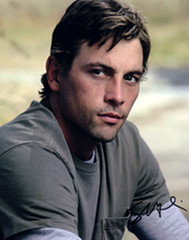Next Mon. (Aug. 6), Geoff Livingston The Buzz Bin will begin to test drive BUMPzee! with a joint community called "BlogStraightTalk."
We were originally going to host BlogStraightTalk on a new closed niche social network that allowed some semblance of group discussions. In fact, it was this closed niche social network that initiated our conversation.
In reviewing the network, I mentioned it might work "if we can only teach social media newcomers what to blog about so the community blog doesn’t die off as a 'promo post' board."
"Well, why don't we do something about that?" Livingston asked.
"Why don't we ... ? Um, social media overload," I offered. "Besides, I was partial to BlogCatalog.com, RecruitingBloggers.com, and RecruitingBlogs.com, etc., etc.”
Eventually, he persuaded me based on the content model and a modest time commitment (on my part). Besides, it might even be fun to banter about social media somewhere other than our blogs since we do not always agree (but never take those disagreements too seriously).
We were approved and set to launch in early July, but then the term "closed" in the closed niche social network was suddenly taken a bit too seriously for Livingston. It seems that my original definition might have been more accurate if I had said "closed niche commercial network."
Regardless, we found ourselves with a decent concept but no platform for it until settling on BUMPzee, which allows bloggers to develop niche communities around their blogs. I learned about it from Walter Burek and Theresa Hall who host a developing writers community there (I have since joined).
So what's BlogStraightTalk?
BlogStraightTalk is a weekly discussion on the best and worst of blogging content practices, presented in a contrarian format (eg. Ebert & Roper or Kornheiser & Wilbon).
We'll alternate the discussion between best/worst concepts and blogs (or social media) reviews. The basic concept is to open up a discussion among experienced bloggers while allowing those who are newer to social media to gain insights into content development.
Anyone can join as a member of the community and participate in the discussion. Members who have established blogs (with at least 10 posts that positively contribute to the development of social media) may be added to the blog roll.
As Livingston offered up on his blog, "Rich and I do go back and forth on some issues, so it could have a nice Pardon the Interruption “dueling pundits” feel to it."
Does this mean I have to disagree? Find out next Monday.
We were originally going to host BlogStraightTalk on a new closed niche social network that allowed some semblance of group discussions. In fact, it was this closed niche social network that initiated our conversation.
In reviewing the network, I mentioned it might work "if we can only teach social media newcomers what to blog about so the community blog doesn’t die off as a 'promo post' board."
"Well, why don't we do something about that?" Livingston asked.
"Why don't we ... ? Um, social media overload," I offered. "Besides, I was partial to BlogCatalog.com, RecruitingBloggers.com, and RecruitingBlogs.com, etc., etc.”
Eventually, he persuaded me based on the content model and a modest time commitment (on my part). Besides, it might even be fun to banter about social media somewhere other than our blogs since we do not always agree (but never take those disagreements too seriously).
We were approved and set to launch in early July, but then the term "closed" in the closed niche social network was suddenly taken a bit too seriously for Livingston. It seems that my original definition might have been more accurate if I had said "closed niche commercial network."
Regardless, we found ourselves with a decent concept but no platform for it until settling on BUMPzee, which allows bloggers to develop niche communities around their blogs. I learned about it from Walter Burek and Theresa Hall who host a developing writers community there (I have since joined).
So what's BlogStraightTalk?
BlogStraightTalk is a weekly discussion on the best and worst of blogging content practices, presented in a contrarian format (eg. Ebert & Roper or Kornheiser & Wilbon).
We'll alternate the discussion between best/worst concepts and blogs (or social media) reviews. The basic concept is to open up a discussion among experienced bloggers while allowing those who are newer to social media to gain insights into content development.
Anyone can join as a member of the community and participate in the discussion. Members who have established blogs (with at least 10 posts that positively contribute to the development of social media) may be added to the blog roll.
As Livingston offered up on his blog, "Rich and I do go back and forth on some issues, so it could have a nice Pardon the Interruption “dueling pundits” feel to it."
Does this mean I have to disagree? Find out next Monday.






















